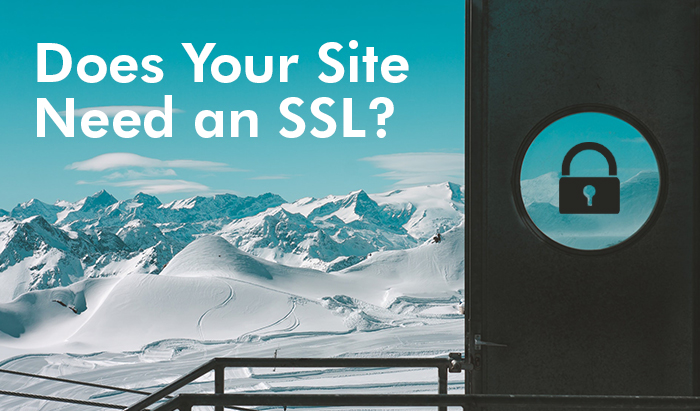Do You Need an SSL?

There have been rumblings for a while now that Google is going to start giving sites using SSL a rankings boost.
For some, that statement alone is enough to make them rush to have one installed. But, surprisingly, the adoption of HTTPS (the SSL-secured version of HTTP) hasn’t been as rapid as you’d expect, despite the search engine optimization (SEO) benefits.
Hopefully this post will help you determine whether you need an SSL certificate for your site.
What is SSL?
SSL (Secure Socket Layer) is a security technology that allows an encrypted connection between you and a server. An SSL certificate purchased from a trusted issuer contains the data your server will use for the encryption.
Typically, when you’re sending data from one machine to another, it’s sent as plain text. If your site sends vulnerable data (such as passwords or credit card numbers) without an SSL, that data could be intercepted by attackers. With SSL in place, the transmitted data is encrypted.
You can tell when a site is protected with an SSL by the green lock symbol next to the URL in your browser. The URL will also have an “S” (which stands for secure) after HTTP.
Weighing the Pros and Cons
There are certainly more benefits to owning an SSL certificate than not. The main thing to take into consideration is that you’re using SSL for the right reasons.
If you sell products or have visitors submit sensitive information, then you definitely should be using an SSL certificate on your website. Seeing that green lock gives your users a sense of trust that their data is protected. You will likely see a boost in conversion rates from this fact alone.
As of now, the SEO gain for having an SSL is very small. If your competition is edging you out online, then it’s definitely time to make a purchase. But don’t expect to be launched to the #1 spot in the rankings.
What’s the Cost?
Your main roadblock to purchasing an SSL certificate may be price. Depending on your needs and who you purchase the certificate through, the price could be anywhere from $30-$200 per year. (Side note – People usually buy an SSL certificate that’s valid for 3 or more years at a time, if available, so they aren’t repeating the renewal process each year.)
There are free SSL certificates that you can have installed on your server, but you’ll incur fees unless you’re able to install it yourself. On top of that, most free SSL certificates expire within 3 months, so you’ll need to repeat this process fairly regularly. Only consider these SSL certificates if you’re strictly trying to gain an SEO boost and aren’t passing vulnerable data.
Well-Rounded SEO is Key
As the web continues to increase in popularity so will threats to our security. Google realizes this and is incentivizing SSL to help make things safer for everyone. Keep in mind, though, that this should just be another tool in your SEO arsenal, not your main focus. Only with all of the proper SEO foundations in place will you truly rise to the top of the rankings.
